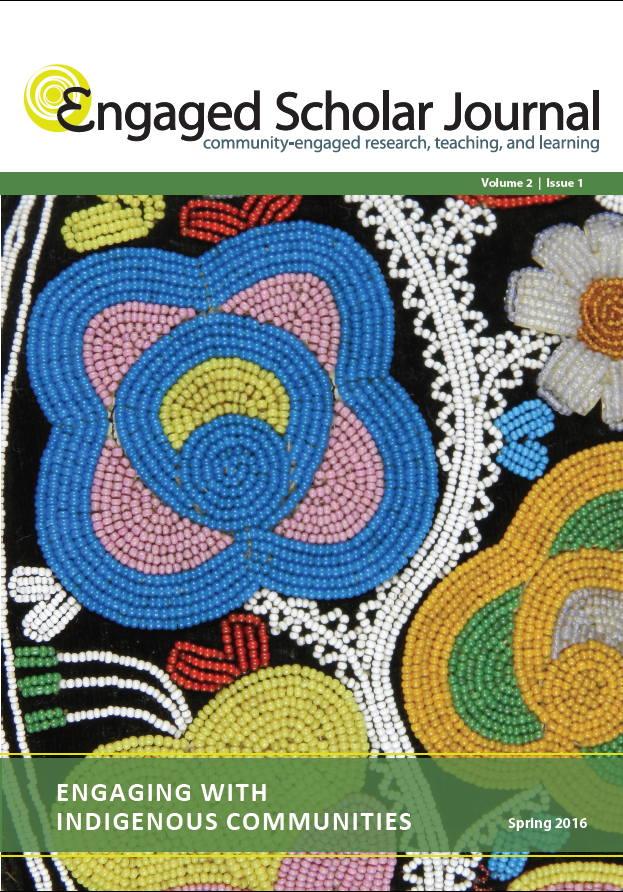Traveling Together? Navigating the Practice of Collaborative Engagement in Coast Salish Communities
DOI:
https://doi.org/10.15402/esj.v2i1.202Keywords:
participatory action research, community engagement, Indigenous communities, participatory video, transportation safetyAbstract
Academics widely understand participatory action research (PAR) to be relevant to communities, collaborative from project design to dissemination of results, equitable and participatory while also action-oriented in pursuit of social justice. In this article, we suggest that there is much need to address both the challenges and opportunities that researchers encounter when applying participatory tools within an Indigenous context. In September 2013, the University of Victoria research team began a transportation safety project in partnership with the University of Windsor and participating Indigenous communities across the country. This project entailed both quantitative and qualitative research methodologies, including a national survey in addition to community conversations, to promote community health and injury prevention. Responsible for outreach to coastal communities in British Columbia, the interdisciplinary research team employed PAR methodologies to address local and national transportation safety concerns ranging from booster seat use to pedestrian safety. In this paper, we ask: what can participatory approaches offer the study of community-engaged research (CER) with Indigenous communities? First, we assess the promises and perils of PAR for community-engaged research when working with Indigenous communities; second, we aim to demystify the process of PAR based on our experience working with the Tsawout First Nation to “Light up the Night” through participatory video with Indigenous youth; third, we reflect on what we learned in this process and discuss avenues for further research. Our submission entails a written article and accompanying videos that illuminate the creative approach to collaborative engagement with Indigenous communities.
Downloads
Published
How to Cite
Issue
Section
License
Authors who publish with this journal agree to the following terms:
- Authors retain copyright and grant the journal right of first publication with the work simultaneously licensed under a Creative Commons Attribution License CC BY 4.0 that allows others to share the work with an acknowledgement of the work's authorship and initial publication in this journal.
- Authors are able to enter separate, additional contractual agreements for the non-exclusive distribution of the journal's published version of the work (e.g., post it to an institutional repository or publish it in a book), with an acknowledgement of its initial publication in this journal.
- Authors are permitted to post their work online (e.g., in an institutional repository or on their website) after the publication of their work in the Engaged Scholar Journal.
- Please note that while every opportunity will be taken to ensure author participation in the editing process, due to time constraints final copyediting changes may be made before publication to ensure APA adherence throughout all submissions.




